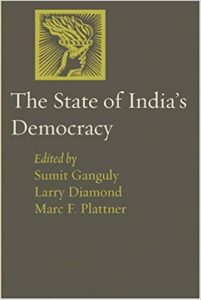Emergency measures to curtail the coronavirus pandemic took tolls on democratic freedoms around the world last year, with setbacks in the West even as some Asian countries made progress, a report said Wednesday. The annual “Democracy Index” published by the Economist Intelligence Unit found an erosion of personal rights in nearly 70 percent of the 167 countries analyzed, Agence France Presse reports.
Democracy was dealt a major blow in 2020, the report states. Almost 70% of countries covered by The Economist Intelligence Unit’s Democracy Index recorded a decline in their overall score, as country after country locked down to protect lives from a novel coronavirus, it added, citing several key trends:
- Government-imposed lockdowns and other disease-control measures led to the withdrawal of civil liberties on a massive scale, causing score downgrades across the vast majority of countries.
- Every region of the world experienced a democratic rollback, but the removal of individual liberties in developed democracies was the most remarkable feature of 2020.
- The Middle East and North Africa and Sub-Saharan Africa both had a terrible year as autocratic leaders used the cover of the pandemic to crack down on opposition.
- Asia gained three “full democracies” (Japan, South Korea and Taiwan), while Europe lost two (France and Portugal).
- The US remains a “flawed democracy”, polarized not only on policy issues but on core values, and the social cohesion needed to support a “full democracy” has collapsed.
- In Eastern Europe and Latin America, the pandemic compounded existing democratic flaws, including weak checks and balances, persistent corruption, a proclivity in some places for strong leaders, and pressures on media freedom.
“That people reluctantly accepted social distancing and lockdowns as the best means of combating the coronavirus does not mean that governments should not be criticized for their democratic failings,” said Joan Hoey, editor of the Index. “The pandemic turned a spotlight on the nature of governance in 21st-century democracies and, in particular, on the relationship between governments and the people, exposing democratic deficits that have existed for a long time.”

The global average score fell to its lowest level since the index began in 2006, falling from 5.44 in 2019 to 5.37.
The top five global rankings were occupied by Norway, Iceland, Sweden, New Zealand and Canada. But only 49.4 percent of the world’s population live in a democracy of some type, and just 8.4 percent reside in a “full democracy.” More than one-third — 35.6 percent — live under authoritarian rule, mostly in China.
In 2020, a large majority of countries — 116 of a total of 167 polled — recorded a decline in scores compared with the previous year. Only 38 recorded an improvement, the report said, adding that the best performer in this year’s index is Taiwan, which was upgraded from a “flawed democracy” to a “full democracy.”
 There were some impressive improvements (Taiwan – described as “a beacon of democracy” in Asia) and some dramatic declines (Mali). There were 11 changes of regime category, seven negative and four positive, the EIU found:
There were some impressive improvements (Taiwan – described as “a beacon of democracy” in Asia) and some dramatic declines (Mali). There were 11 changes of regime category, seven negative and four positive, the EIU found:
- Three countries (Japan, South Korea and Taiwan) moved from the “flawed democracy” category to be classified as “full democracies”, and one country, Albania, was upgraded to a “flawed democracy” from a “hybrid regime”.
- France and Portugal experienced a reversal, losing the “full democracy” status that they had regained in 2019, re-joining the ranks of “flawed democracies”.
- El Salvador and Hong Kong were relegated from the “flawed democracy” classification to that of “hybrid regime”.
- Algeria, Burkina Faso and Mali lost their status as “hybrid regimes” and are now designated as “authoritarian regimes”.
Based on scores over a range of indicators, each country is classified as one of four regime types: “full democracy;” “flawed democracy;” “hybrid regime,” or “authoritarian regime.”.
 India, the world’s largest democracy slipped two places to 53rd position on the Index, a dip largely attributed to the Modi government’s mishandling of the Citizenship Amendment Act (CAA). “The increasing influence of religion under the Modi premiership, whose policies have fomented anti-Muslim feeling and religious strife, has damaged the political fabric of the country,” said the report.
India, the world’s largest democracy slipped two places to 53rd position on the Index, a dip largely attributed to the Modi government’s mishandling of the Citizenship Amendment Act (CAA). “The increasing influence of religion under the Modi premiership, whose policies have fomented anti-Muslim feeling and religious strife, has damaged the political fabric of the country,” said the report.
The EIU listed Hong Kong in 87th place, downgrading it from “flawed democracy” to “hybrid regime.”
“A national security law that curtails Hong Kong’s political freedoms and undermines its judicial independence was passed in June,” the EIU said. “Over the course of the year, pro-democracy activists were arrested, and several hundred protesters were imprisoned.”







